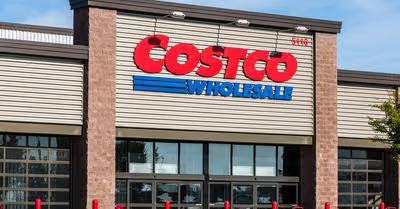Table of Contents
Understanding Constipation in Seniors
Constipation is a common concern for older adults and can significantly impact their daily lives. Seniors may experience both physical discomfort and psychological distress when dealing with constipation.
Causes of Constipation in Older Adults
Constipation can be a frustrating and uncomfortable condition, particularly for seniors. There are several possible causes of constipation, and understanding them is important to help manage the condition.
Let's take a closer look at some of the common causes of constipation in seniors:
Inadequate Fiber Intake
Fiber is an essential nutrient that helps to promote healthy digestion and regularity. If a senior's diet is low in fiber, it can lead to constipation. Fiber helps to add bulk to stool, making it easier to pass through the digestive system. Foods such as fruits, vegetables, whole grains, and legumes are great sources of dietary fiber.
Insufficient fiber intake, for example, can also increase the risk of developing other health problems like heart disease and diabetes.
Insufficient Fluid Consumption
Dehydration is another common cause of constipation in seniors. Without enough water, stool can become hard and difficult to pass. Seniors should aim to drink at least eight glasses of water daily to stay hydrated.
Also, dehydration has numerous effects on seniors. It can cause fatigue, dizziness, and confusion.
Lack of Physical Activity
Exercise helps to stimulate the muscles in the digestive tract, which can help to move stool through the system. Seniors who lead sedentary lifestyles may be more prone to constipation.
Simple activities such as walking, stretching, or gardening can help to get the digestive system moving. In addition, a lack of physical activity can lead to muscle weakness and a higher risk of falls in older adults.
Certain Medications
Some medications can cause constipation as a side effect. Pain relievers, diuretics, and antidepressants are common culprits. If a senior is experiencing constipation while taking medication, they should speak to their doctor to see if an alternative medication is available.
Medical Conditions
Certain medical conditions can also contribute to constipation. For example, diabetes, Parkinson's disease, and hypothyroidism can all affect the digestive system. Seniors with these conditions should work with their healthcare providers to develop a plan for managing constipation.
Understanding the root causes can help seniors and their caregivers implement appropriate strategies to alleviate the issue.
Types Of Constipation in Seniors
Constipation can appear in different individuals, and seniors are no exception. Here are some of the types of constipation that seniors may experience:
Slow Transit Constipation
This type of constipation occurs when the muscles in the colon move too slowly, making it difficult for stool to move through the digestive system. Seniors with this type of constipation may experience infrequent bowel movements and have difficulty passing stool.
Pelvic Floor Dysfunction Constipation
This type of constipation occurs when the muscles in the pelvic floor are not working properly, making it difficult for seniors to have a bowel movement. Seniors with this type of constipation may experience difficulties during bowel movements or a feeling of incomplete evacuation.
Medication-Induced Constipation
As mentioned, certain medications can cause constipation as a side effect, particularly pain relievers, diuretics, and antidepressants. Seniors who take these medications may be more prone to constipation.
Neurogenic Constipation
Notably, seniors with certain medical conditions, such as Parkinson's disease or multiple sclerosis, may experience neurogenic constipation. This type of constipation is caused by nerve damage that affects the muscles in the digestive system.
IBS-C
Irritable bowel syndrome with constipation, or IBS-C, is a condition that affects the digestive system and can cause constipation. Seniors with IBS-C may experience abdominal pain, bloating, discomfort, and constipation.
Constipation Symptoms
Symptoms of constipation in seniors may vary from mild to severe. Some common symptoms include
Infrequent or difficult-to-pass bowel movements: Constipation is often characterized by infrequent bowel movements or difficulty passing stool. This may mean going longer than three days without a bowel movement for some seniors. When stool stays in the colon for too long, it can become hard and dry, making it more difficult to pass.
Straining during bowel movements: Seniors with constipation may have to strain or push harder than usual to have a bowel movement. This can be uncomfortable and may even cause pain or bleeding. Straining during bowel movements can also put pressure on the rectum and cause hemorrhoids.
A feeling of incomplete evacuation: Even after a bowel movement, some seniors may feel like stool is still left in their rectum. This can be uncomfortable and may make them feel like they need to have another bowel movement soon after the first one.
Abdominal pain or bloating: Constipation can cause discomfort in the abdomen, and some seniors may experience bloating or abdominal pain as a result. This can make it difficult to eat or perform regular activities.
Hard or lumpy stools: When the stool is not passing through the digestive system as it should, it can become harder and more difficult. This can result in hard or lumpy stools that can cause discomfort and even pain during bowel movements.
Being aware of these symptoms can help seniors and their caregivers identify constipation early and take appropriate steps to alleviate the discomfort.
Best Home Remedies for Constipation Relieve in Seniors
Constipation can be a common issue for seniors, causing discomfort and affecting their quality of life. Nevertheless, there are several effective natural home remedies to relieve constipation that are safe and easy for seniors to implement.
Hydration and Fluid Intake
Staying properly hydrated is crucial for preventing constipation. Water is the best fluid for staying hydrated and maintaining bowel regularity.
Seniors should aim to drink at least 8 glasses of water per day, or more if they are particularly active or live in a hot climate. Water helps to keep stools soft and easy to pass, increasing stool frequency and reducing the risk of constipation.
In addition to water, seniors may also consider drinking coffee, herbal teas, or warm lemon water to promote bowel movements further. Herbal teas like chamomile, ginger, and peppermint have natural laxative properties and can help to stimulate digestion and prevent dry stools.
Warm lemon water, simply fresh lemon juice mixed with warm water, can also enhance stool consistency and promote bowel movements.
But remember, it's important to avoid drinking fluids that can dehydrate the body, such as caffeine and alcohol. These fluids can actually contribute to constipation by causing dehydration and reducing the body's ability to absorb water.
Regular Exercise
Did you know that regular physical activity can help seniors maintain healthy bowel movements and prevent constipation? It's true! When we exercise, our muscles, including the ones in our intestines, become stimulated and work more efficiently.
For seniors, choosing low-impact activities that are gentle on the joints and muscles but still effective in promoting mobility and bowel regularity is important.
Walking is a great option because it can be done anywhere and anytime. It's low-impact and helps get blood flowing to all body parts, including the digestive system.
Swimming is another low-impact activity that can be beneficial for seniors with constipation. The buoyancy of the water takes the pressure off of the joints and allows for gentle movement of the body, which can help stimulate the muscles in the intestines and ease constipation.
Yoga is also a great option for seniors looking to maintain mobility and prevent constipation. Many yoga poses focus on twisting and stretching the abdomen, which can help to stimulate digestion and promote healthy bowel movements.
But remember, it's important to start slowly and gradually increasing your exercise routine's intensity and duration. Seniors should also check with their healthcare provider before starting any new exercise program.
Try Magnesium Citrate
Additionally, a magnesium citrate supplement can help relax bowel muscles, promote bowel movements, and prevent constipation in seniors.
Magnesium is an essential mineral that plays a crucial role in many bodily functions, including muscle and nerve functions.
When it comes to bowel movements, magnesium citrate can help to relax the muscles in the intestines, making it easier to pass stools. It also draws water into the colon, which can help to soften stools and facilitate their passage.
Seniors should aim to incorporate magnesium-rich foods into their diet, such as leafy greens, nuts, seeds, and whole grains. But, if they are still experiencing constipation, a magnesium citrate supplement may be beneficial.
Increase Fiber Intake
A diet that is rich in fiber is essential for maintaining regular bowel movements and preventing constipation in seniors. Fiber is a carbohydrate that cannot be digested by the body, and it plays a crucial role in maintaining a healthy digestive system.
Notably, there are two types of dietary fiber: soluble fiber and insoluble fiber, both of which are important in preventing constipation in senior citizens and maintaining a healthy diet.
Soluble fiber is found in foods like oatmeal, nuts, seeds, and some fruits like apples, bananas, and berries. When consumed, this fiber dissolves, forming a gel-like substance in the digestive tract, which can help slow digestion and promote feelings of fullness.
This type of fiber is also beneficial for lowering cholesterol levels and regulating blood sugar levels, making it a great addition to a healthy diet.
Insoluble fiber, on the other hand, is found in foods like whole grains, vegetables, and some fruits like oranges and grapes. This type of fiber does not dissolve, it remains intact and adds bulk to stools, making them easier to pass.
It’s important for maintaining healthy bowel function and preventing constipation.
Both types of fiber are important for a healthy diet, and seniors should aim to incorporate a variety of fiber-rich foods into their meals.
Here are some tips for incorporating fiber into a senior's diet:
- Choose Whole Grains: Seniors should opt for whole grain bread, pasta, and rice instead of refined versions, which have been stripped of fiber and nutrients.
- Eat Plenty of Fruits and Vegetables: Seniors should consume fruits and vegetables, including those with both soluble and insoluble fiber, such as berries, broccoli, and leafy greens.
- Add Legumes to Meals: Legumes, such as lentils, beans, and chickpeas, are a great source of both soluble and insoluble fiber and can be added to soups, salads, and main dishes.
- Increase Fiber Intake Gradually: Seniors should gradually increase their fiber intake to avoid digestive discomforts like bloating and gas. It is recommended to increase fiber intake by 5 grams per day until the recommended daily intake of 25-30 grams per day is achieved.
Herbal Remedies and Teas
Herbal remedies and teas are among the great natural ways for seniors to alleviate constipation. One widely used herbal laxative is Senna, which can be consumed as a tea or a supplement.
Senna works by stimulating the muscles in the colon, which helps to move stool along and promote bowel movements.
In addition to Senna, seniors may also consider drinking warm chamomile or ginger tea. Chamomile tea has been known to soothe stomach discomfort and reduce inflammation in the digestive tract.
Also, ginger tea has a spicy and full-bodied flavor and contains the antioxidant gingerol, which is the main bioactive disease-fighting compound found in ancient ginger roots. Ginger tea has been used for decades to relieve nausea and digestive complaints.
It's important to note that while herbal remedies and teas can be a natural way to support digestive health, it's always a good idea to consult with a healthcare provider before trying any new supplements or remedies.
You should also consult a professional if constipation persists after taking the supplements.
Additionally, it's important to ensure that any herbal supplements or teas are purchased from reputable sources to ensure safety and efficacy.
Natural Laxatives
Natural laxatives are foods that can help seniors with constipation by promoting bowel movements in a gentle and natural way. One such food is prunes, which are dried plums that contain a natural sugar alcohol called sorbitol.
Here are some of the benefits of prunes and prune juice for seniors experiencing constipation:
Sorbitol Softens Stools: Sorbitol is a natural sugar alcohol that has a laxative effect on the body. It works by drawing water into the colon, which can help to soften stools and make them easier to pass.
Rich in Fiber: Prunes are high in soluble and insoluble fiber. Soluble fiber dissolves in water and forms a gel-like substance that can help to soften stools, while insoluble fibers act as bulking agents to stools, making them easier to pass.
Natural and Gentle: Unlike some over-the-counter laxatives, prunes and prune juice are a natural and gentle way to relieve constipation. They work with the body's natural processes to encourage bowel movements rather than forcing them.
Nutrient-Dense: Prunes are also rich in nutrients like potassium, iron, and vitamin A. These nutrients are essential for maintaining overall health and can help to support healthy bowel function.
For effectiveness, seniors should incorporate prunes into their diet. Here are some tips for incorporating prunes and prune juice into a senior's diet to relieve constipation:
Eat Prunes: Seniors can eat a few prunes each day, either on their own or mixed into a dish like oatmeal or yogurt. It is recommended to start with a small amount and gradually increase the quantity as needed.
Drink Prune Juice: Seniors can also drink prune juice made from the liquid extracted from prunes. It’s recommended to start with a small amount, such as half a cup, and gradually increase the quantity as needed.
Stay Hydrated: It’s important to drink plenty of water when consuming prunes or prune juice to avoid dehydration, which can worsen constipation.
Try Abdominal Massage
Gentle abdominal massage can provide relief for seniors with constipation by stimulating their intestines and promoting bowel movements. Seniors, or their caregivers, can use circular, clockwise motions to gently massage the stomach area, helping to promote regularity and ease discomfort.
Here are some simple techniques seniors can try at home to perform abdominal massage safely:
The Clockwise Circular Motion: Seniors can start by lying on their back with their knees bent and feet flat on the ground. Using their fingertips, they can apply gentle pressure around their belly button in a clockwise circular motion. They can repeat this motion several times, gradually increasing the pressure as they become more comfortable.
The Palpation Technique: Seniors can place their fingertips on their abdomen and apply gentle pressure, feeling for any areas of tenderness or tightness. They can then use their fingertips to apply gentle circular massage to these areas, focusing on relaxing the tension.
The Kneading Technique: Seniors can start by placing their hands on their lower abdomen, just above the pubic bone. They can then use their fingers to knead gently, applying pressure in an upward motion toward their belly button.
They can repeat this motion several times, gradually increasing the pressure as they become more comfortable.
It's important for seniors to consult with their healthcare provider before starting any new self-care routine, especially if they have any medical conditions or are taking any medications that may be affected by abdominal massage.
If they experience any pain or discomfort during the massage, they should stop immediately and seek medical attention.
When to Seek Medical Attention During Constipation in Seniors
Are you experiencing chronic constipation? It's a common condition that can cause a lot of discomfort and frustration. In some cases, it may even lead to serious complications.
So, when should you seek medical attention for chronic constipation? Let's explore that topic together.
Chronic constipation is a condition in which you have difficulty passing stools or have infrequent bowel movements for an extended period, typically three or more months. It can be caused by various factors, including a low-fiber diet, dehydration, medication side effects, hormonal imbalances, and medical conditions such as irritable bowel syndrome (IBS), hypothyroidism, or Parkinson's disease.
While occasional constipation may not be a cause for concern, chronic constipation can lead to several risks and complications that may require medical attention. These include
Hemorrhoids: Straining during bowel movements due to chronic constipation can cause hemorrhoids, which are swollen veins in the rectal area. Hemorrhoids can be painful, itchy, and may bleed.
Fissures: Chronic constipation can also cause fissures, which are small tears in the lining of the anus. Anal fissures can cause pain, bleeding, and discomfort during bowel movements.
Rectal Prolapse: Chronic constipation can cause the rectum to protrude out of the anus, a condition known as rectal prolapse. It can cause discomfort and difficulty with bowel movements.
Fecal impaction: Chronic constipation can cause fecal impaction, which is a buildup of hardened stool in the rectum that cannot be expelled. This can cause abdominal pain, bloating, and nausea.
Diverticulitis: Chronic constipation can lead to diverticulitis, which is an inflammation of the diverticula and small pockets that develop in the lining of the colon. Diverticulitis can cause abdominal pain, fever, and nausea.
If you experience any of these symptoms, it's important to seek medical attention right away. Your doctor can evaluate your symptoms and determine the best course of treatment. They may recommend healthy lifestyle habits such as increasing your fiber intake, drinking more water, and exercising regularly.
They may also prescribe medication or recommend other therapies, such as biofeedback or bowel retraining.
In some cases, your physician may need to perform a physical exam or order diagnostic tests, such as a colonoscopy or an X-ray, to determine the cause of your chronic constipation.
It's also essential to seek medical attention if you notice any changes in your bowel habits, especially if you're over 50 years old.
Changes in bowel habits, such as blood in your stool, persistent diarrhea or constipation, and unexplained weight loss, can be a sign of a more serious underlying condition, such as colon cancer.
Effective Treatments and Medications for Constipation in Seniors
Constipation in seniors can be a challenging issue to deal with. Still, there are effective treatments and medications available to relieve the symptoms.
They include over-the-counter options and prescription medications.
Over-the-Counter Options
Over-the-counter options for treating constipation are widely available and can provide relief for seniors. Some common choices include:
- Fiber supplements can help soften the stool and ease bowel movements by adding bulk. Common examples are psyllium and methylcellulose.
- Osmotic laxatives: These draw water into the colon to ease stool passage. Examples include magnesium hydroxide (Milk of Magnesia) and polyethylene glycol (MiraLAX).
- Stool softeners: They moisten the stool, making it easier to pass. Docusate (Colace) is a widely used stool softener.
- Stimulant laxatives: These speed up the movement of the intestine, helping to push stool out. Senna and bisacodyl are common colonic stimulants.
Prescription Medications
For chronic idiopathic constipation or functional constipation, there are several prescription medications available to help seniors, including:
- Lubiprostone (Amitiza): This medication works by drawing water into your intestines, speeding up stool movement.
- Linaclotide (Linzess): It also increases intestinal fluid and improves bowel function, helping to relieve constipation.
- Plecanatide (Trulance): Similarly, plecanatide draws water into the intestines, promoting regular bowel movements.
- Prucalopride (Motegrity): This drug stimulates serotonin 5-hydroxytryptamine 4 receptors, helping to move stool through the colon.
Role of Probiotics in Relieving Constipation in Seniors
While many over-the-counter and prescription medications are available to treat constipation, some seniors may prefer to try natural remedies, such as probiotics, to relieve their symptoms.
Probiotics are live microorganisms that are beneficial to the digestive system when consumed in adequate amounts. They are found naturally in fermented foods such as yogurt, kefir, and sauerkraut and in supplement form.
Normally, probiotics help relieve constipation in seniors by promoting the growth of beneficial gut bacteria and increasing bowel movements.
One of the most commonly used probiotics for constipation relief in seniors is Bifidobacterium lactis. This probiotic improves stool frequency and consistency in seniors with constipation.
In one study, seniors who took a probiotic supplement containing Bifidobacterium lactis experienced significant improvements in bowel movements and stool consistency compared to those who took a placebo.
Lactobacillus acidophilus is another probiotic that may be beneficial for seniors with constipation. It improves bowel movements and reduces the severity of constipation symptoms.
Seniors who take probiotic supplements containing Lactobacillus acidophilus experience significant improvements in stool frequency and consistency.
Also, seniors can use Streptococcus thermophilus probiotics to relieve constipation. This probiotic reduces constipation symptoms and improves the overall digestive process.
Lactobacillus plantarum is another probiotic that may be beneficial for seniors with constipation. This probiotic improves bowel movements and reduces abdominal pain and discomfort associated with constipation.
It's important to note that the effectiveness of probiotics for constipation relief may vary depending on the individual and the specific strain of probiotics used.
Seniors interested in using probiotics to relieve constipation should talk to their healthcare provider to determine the best type and dosage for their needs.
Recent Articles
















